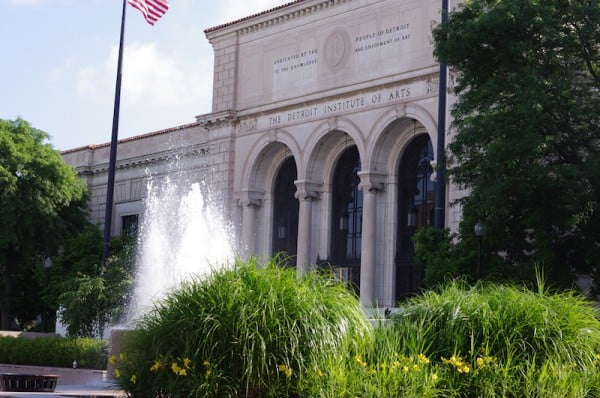
The Detroit Institute of Arts has teamed up with the city to hire Artvest Partners, a New York art investment firm, to provide a compelling legal defense at the upcoming bankruptcy trial against city creditors, who are expected to demand the museum sell its art, reports the Detroit Free Press.
During the hearings, Artvest personnel will likely serve as expert witnesses. The company is well known for its advisory work with attorneys, dealers, insurers, collectors, and other art world professionals. According to Bill Nowling, spokesperson for Detroit emergency manager Kevyn Orr who spoke with the Free Press, Detroit and the DIA will equally share the costs of the firm’s services.
The value of the DIA collection has been a point of contention between the city and its creditors. Although Christie’s appraised its worth at under $900 million, that figure reflects only those works purchased directly with city funds. A second assessment of the entire 66,000-work collection, undertaken at the behest of the creditors, is currently underway (see artnet News report).
The museum has brought Artvest Partners on on board to assess the value of the art as well as how practical it would be to sell, rent, or otherwise monetize the DIA collection. As part of Christie’s report, the auction house suggested a number of alternatives to outright selling the art that could still leverage loans. While the city was doubtful such ideas could be workable, Artvest will carefully review all of the options.
“We’re not going to talk about our legal strategy, but we want to make sure we can adequately answer the questions of the judge and the court, and that we have a sense of the value of everything that’s in the museum, because that’s one of the issues that’s come up in the objections,” Nowling told the Free Press.
The Rivera Court at the Detroit Institute of Arts. Photo: courtesy of the Detroit Institute of Arts.
Hiring Artvest makes it clear that the museum is not counting on the acceptance of Orr’s “Grand Bargain,” which would put $816 million in city pension funds in the museum’s name, allowing the institution to become a charitable trust independent of city ownership and preventing the sale of its art.
City creditors have attacked the plan both for undervaluing the collection and for unfairly benefiting a single group of creditors, and are still hoping to liquidate the museum’s holdings. Several organizations have expressed an interest in purchasing some or all of the art.
With Artvest on its side, the DIA will be better prepared to defend itself against creditors eager to sink their teeth into its world-class collection. The trial is scheduled to begin in August.